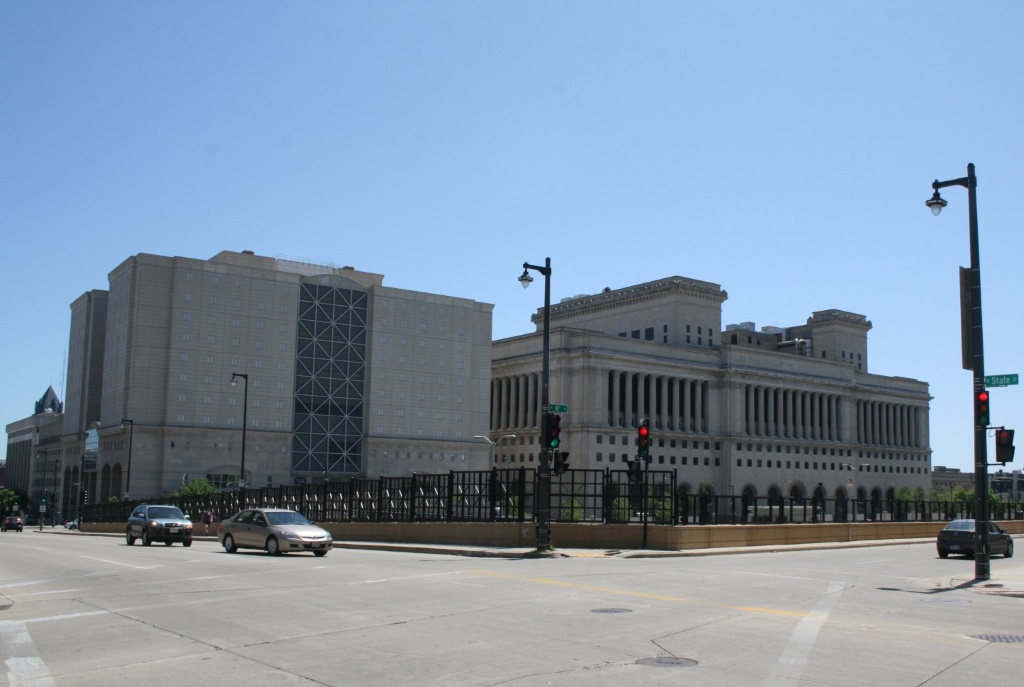Federal Bill Could Lower Cost of Jail Phone Calls
Milwaukee County Board has grappled with jail phone costs for inmates, families.
New federal legislation passed by both houses of the U.S. Congress would provide the Federal Communications Commission (FCC) the authority to regulate an area of the private corrections industry that local lawmakers in Milwaukee County have recently taken on: corrections and jail phone calls.
In early 2022, Sup. Ryan Clancy worked with a non-profit called Worth-Rises, which describes itself as an “organization working to end the exploitation of incarcerated people and their loved ones,” to draft a resolution that would move the county toward free phone calls for people incarcerated in the Milwaukee County Jail or the Community Reintegration Center, formerly known as the House of Correction.
A watered-down version of that policy ultimately passed the full board. Still, Worth-Rises discovered during the process that more than $5 million is spent annually on phone and video calls for people in the custody of the county and that most of this money is being paid by families and friends to talk to the people in custody.
The federal legislation sponsored by Sen. Tammy Duckworth (Ill.) gives the FCC the authority to regulate the corrections communications market. Specifically, the federal agency would be directed to create new rules “to ensure that payphone service providers charge ‘just and reasonable rates’ for payphone calls and other communication methods used by inmates in correctional facilities,” according to an analysis by the non-partisan Congressional Budget Office (CBO).
The president is expected to sign the bill, but its impact will not be felt overnight. The CBO notes that it will take approximately four years to implement the bill, with the FCC taking time to collect and analyze data on corrections telecommunications and then develop regulations based on that research.
“Given the current rates charged by those communication providers and the vast number of audio and video calls made and received by inmates at correctional facilities, CBO expects the cost of the mandate would be significant,” the analysis noted.
The bill is called the Martha Wright-Reed Just and Reasonable Communications Act. Its namesake was an advocate for corrections telecommunications reforms who came to the issue when she found herself having to pay hundreds of dollars a month to call her incarcerated grandson. She went on to become a plaintiff in a lawsuit challenging the monopolies maintained in the corrections telecommunications industry. Rep. Bobby Rush sponsored the version of the bill that passed the U.S. House of Representatives.
Bianca Tylek, executive director of Worth Rises, released a statement saying, “The predatory correctional telecom industry has avoided regulation for too long, and families have paid the exorbitant price.” Researchers have found that maintaining relationships with families and friends has a strong correlation to lower rates of recidivism.
“Those connections are important to the strength of families, well-being of people inside, and their mutual success upon reentry,” Tylek said. “Their success benefits us all.”
If you think stories like this are important, become a member of Urban Milwaukee and help support real, independent journalism. Plus you get some cool added benefits.
MKE County
-
Chief Judge Questioned About ICE Policy, Texts, Emails in Dugan Trial
 Dec 17th, 2025 by Graham Kilmer
Dec 17th, 2025 by Graham Kilmer
-
Fellow Judge Testifies in Dugan Case
 Dec 16th, 2025 by Graham Kilmer
Dec 16th, 2025 by Graham Kilmer
-
Key Questions in Dugan Trial Take Shape on First Day
 Dec 15th, 2025 by Graham Kilmer
Dec 15th, 2025 by Graham Kilmer























The story fails to explain how the inmate phone system works. Inmates can only make collect calls and the recipient must accept the charges which can run as high as $5.00 per minute. The family of the inmate is probably not financially well off and chances are the breadwinner is the one behind bars. The phone contracts contain a split in the fees collected, kicking back a percentage to the county or state or whoever owns the jail. I did a story on this about 20 years ago and found are area counties, Outagamie and Winnebago, were netting $150,000 to $200,000 a year in phone charges. There is little incentive to improve the situation when counties are netting that kind of revenue. It is a scandal but there is no sympathy for inmate’s families.